Karamo Brown talks hosting ‘Noah’s Arc’ reunion after 12-year hiatus
Fifteen years ago, cult classic Noah’s Arc made history when the Patrik Ian-Polk created series became the first all-Black gay cast on television.
The show, which debuted on the then newly-launched Logo TV channel in 2005, became an instant hit, largely credited to the show’s uncharted exploration of the Black queer male experience.
Much to the dismay of fans, Noah’s Arc was canceled after just two seasons on the air. And while Ian-Polk tried to satisfy viewers with a Noah’s Arc film in 2008, which seemingly gave the cast a much-needed send-off, for years there has remained an appetite for more from the groundbreaking TV series.
READ MORE: J. August Richards on coming out as gay: ‘I told my truth’
After more than a decade, however, fans are somewhat getting their wish with a live reunion special July 5 at 8 p.m. hosted by Queer Eye’s Karamo Brown.
In an exclusive interview with theGrio’s Gerren Keith Gaynor, Brown, who made history himself just before Noah’s Arc’s television debut as the first Black gay man on reality television as a cast member of The Real World, discusses why Noah’s Arc was so pivotal for the Black LGBTQ+ community and the state of media representation for Black queer men in Hollywood.
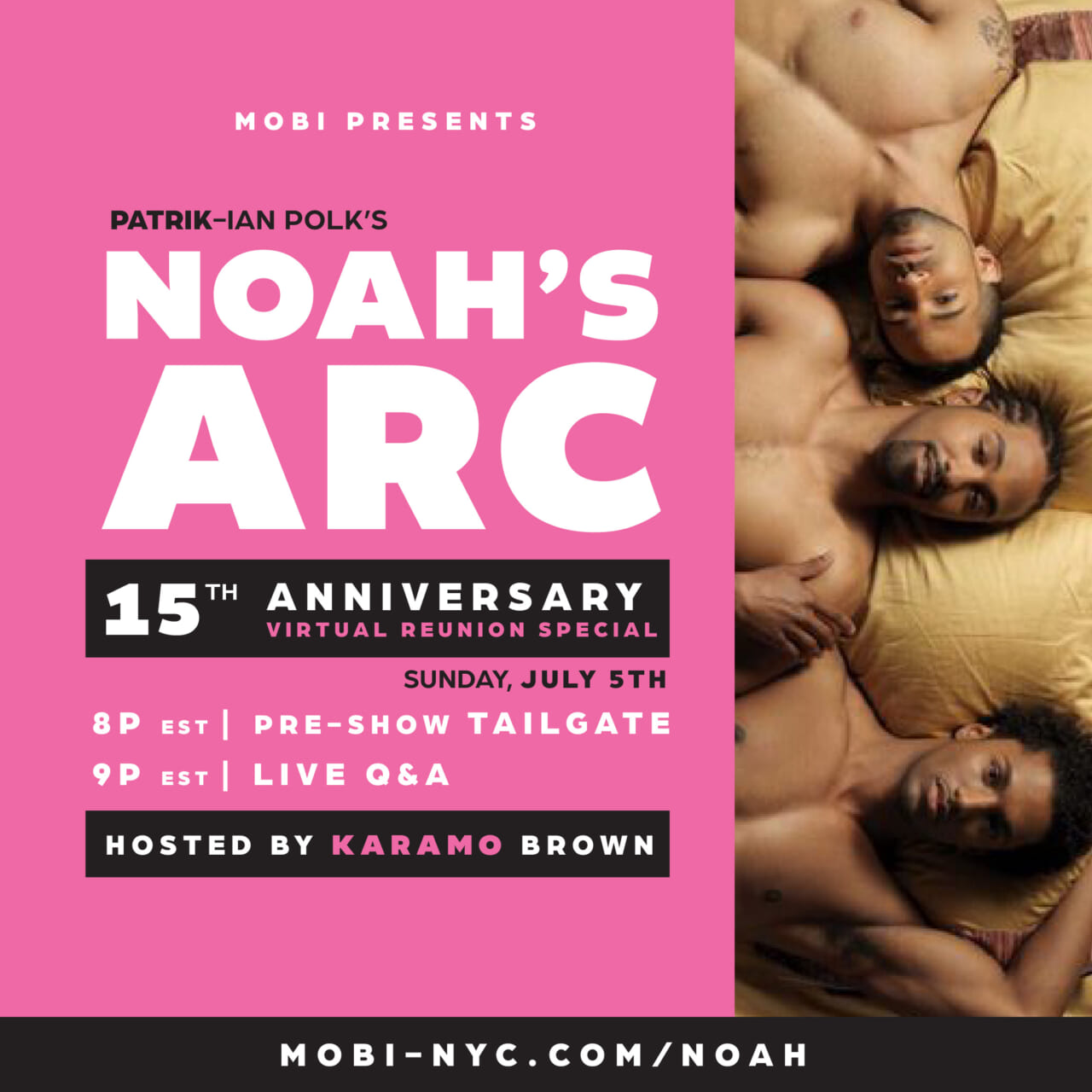
theGrio: What are you most looking forward to as the host of the Noah’s Arc live reunion?
Karamo Brown: I’m looking forward to having fun with the cast because like all of the audience, I’m a fan and I’m very excited that it’s coming back. But I also want to have deeper conversations. Fifteen years ago when Noah’s Arc was coming out, the conversations within the Black gay community were just starting to truly happen on a national scale. People were starting to tune into, like, oh, we need to pay attention to the Black, gay, queer community and what that represents.
We were starting to kind of have a conversation about Black trans folks and HIV in the Black community. It was birthed out of this desire to control our narrative from having Oprah [Winfrey] talk about the DL (“down-low”) all the time on her show and everybody thinking we were all DL. It’s so great to see where we were and where we are now and where we need to be as a community. This was a moment. And this has now turned into a movement and we need to continue that even through the media.
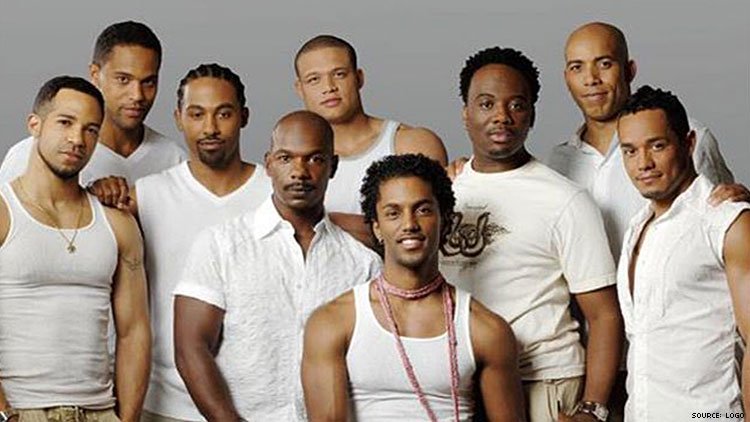
theGrio: As you mentioned, Noah’s Arc was such a historic moment on TV. You were also a part of this moment as well because your season of The Real World happened shortly before Noah’s Arc’s debut. And I’m sure at that time it might have felt like the renaissance that we’re experiencing now was just about to happen back then in 2005. What did that feel like at that time? Because it was so far ahead of where we are today in terms of progress.
Karamo: After The Real World was airing and Noah’s Arc was airing, I remember myself and the Noah’s Arc cast went city to city from New York to Chicago and L.A. and we were doing these events at predominately Black spaces. As a Black man and as a gay man, I had always loved and represented my culture. I remember everyone was like, there’s no way he could be gay, he’s wearing Sean John and I was like ya’ll are so limited in your view of what you think it is to be Black and gay.
One time we were in Atlanta and there were thousands of people, and they were all Black, gay, queer, trans people and it was beautiful. We were talking and having conversations unlike before in white spaces where I have to tell you what I’m experiencing. I have to tell you why we dress this way. It was like we all know what’s going on. We all know what we need. We all know what we desire. It felt empowering. I’ve always left that moment feeling like when we truly band together as Black people who also identify as part of the LGBTQ+ community and when there are Black allies who are straight, we are so powerful. We see true change.
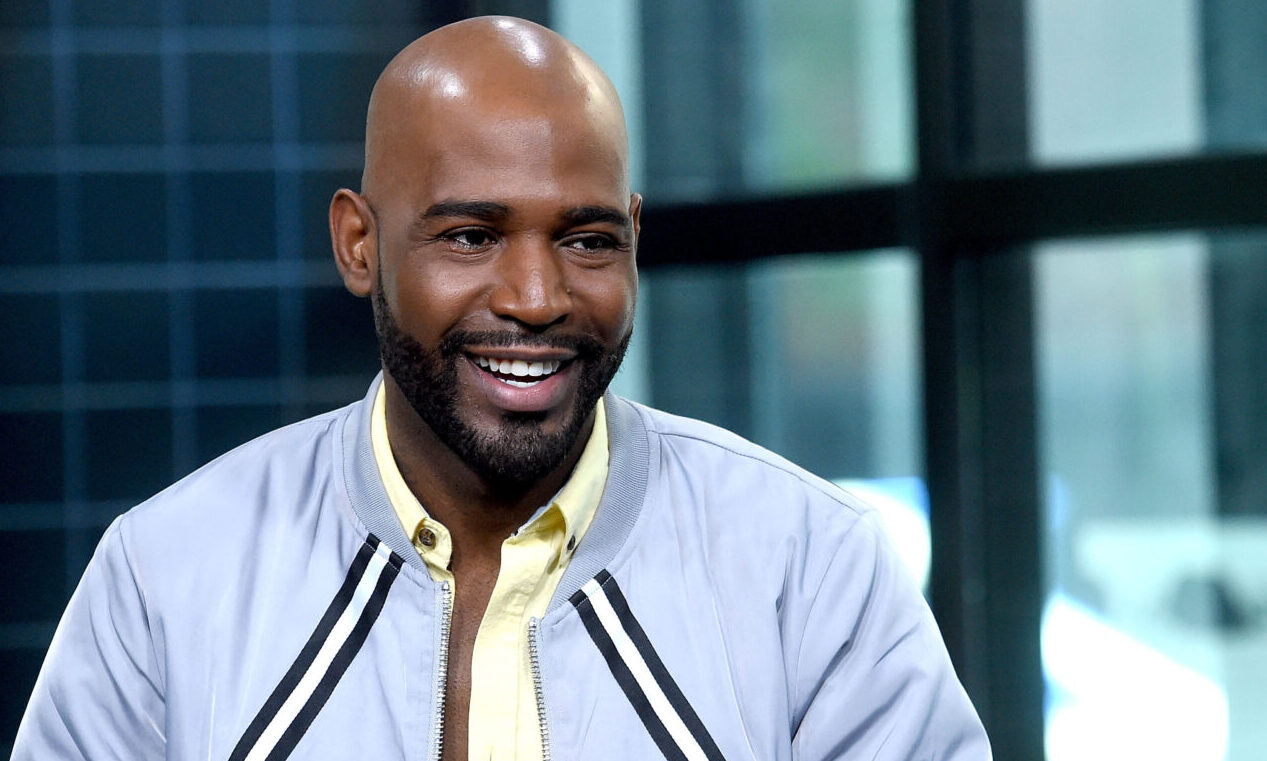
That helped young me to realize that I had to go on this journey to not be crazy Karamo, drinking and doing whatever, but become an adult who understood his power as a Black man, as a gay man, and use that power to create change. And I think that’s what we’re seeing now again. People are waking up to their power and how their identities can help them to create a better tomorrow. And was beautiful to see then and now again.
theGrio: If you had to make a quick assessment of where we are in terms of proper representation of Black queer people in media, especially compared to fifteen years ago, what would you say?
Karamo: I would say 15 years ago we were at an F minus. The teacher told us that we need to do a whole lot of work because we weren’t studying. I would say right now we’re probably at a C minus, where you’re seeing more representation but you’re not seeing enough. We should be at an A and we are going to get to A. You know, there are more content creators. There are more executives. There are more writers. There are people stepping to the spaces.
But there’s still a lot more that needs to be happening. More shows need to be greenlit. We understand that Hollywood has a history of being racist, homophobic and sexist … and so it’s our job to continue to fight to make sure that we are demanding that people who look like us are put into those positions of power. We have to start remembering that if we don’t see ourselves then stop spending your dollars on it.
I didn’t watch one episode of the Will & Grace reboot because I already knew there wasn’t going to be anyone Black on there and I was tired. Ya’ll are in New York and you’re telling me this cast don’t have any Black friends that are also gay? I’m just not for it. And so I just think it’s very important that we understand our power because when we don’t watch the ratings go down. There has been progress. You know, you look at what Lena [Waithe] has done and what Pose has done, you see what Queer Eye has done to a small degree. You see things happening, but it’s not enough.
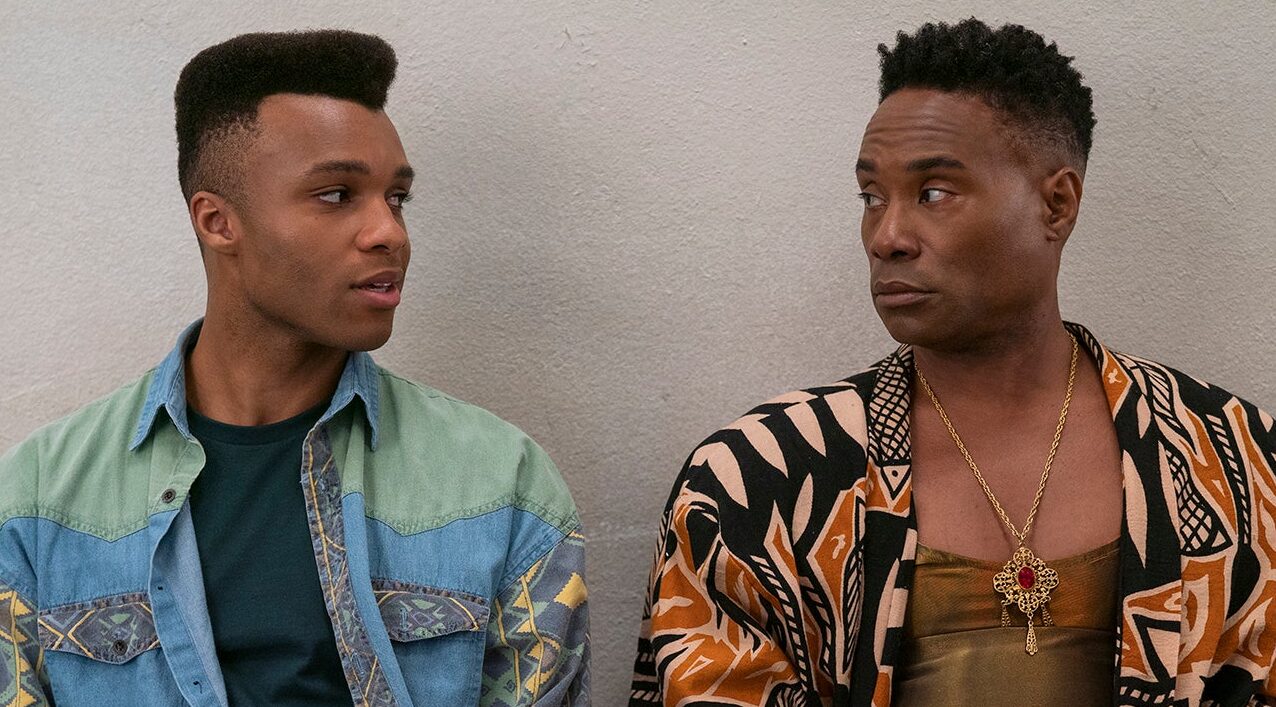
theGrio: I discovered Noah’s Arc three years after it premiered as a sophomore at Morehouse College. And I remember just the joy of just watching Black queer intimacy and love in friendship and in romance. It was very transformative for me. Even though you were on TV and you kind of were at the center of this, what kind of impact did Noah’s Arc have on you?
Karamo: It had a big impact on me. When I was on The Real World, I remember being in Philly and it was so hard for me to meet guys because nobody wanted to be on camera. It’s not like today where everybody was like, oh, yeah, I’ll do it. I mean, I would go to a gay Black club in Philly, I remember, and people would scatter. They would be like ‘oh, hell no. And I became this sort of marker of like if Karamo comes ya’ll run because he’s trying to put ya’ll on camera.
It was not the same comfortability that we have today. And so it was a very hard thing for me because I wanted to see my love story like I had seen when I was at FAMU. I dated a number of Black men and it was beautiful. But to see it on Noah’s Arc because I couldn’t fully get it was a great thing. The conversation about someone who is still on their journey of accepting their sexuality between Darryl Stephens’ character (Noah) and Jenson Atwood‘s character (Wade) was big because in the media all we had heard it at that time was every guy is DL and they’re doing nefarious things … they’re trying to trick your daughters.
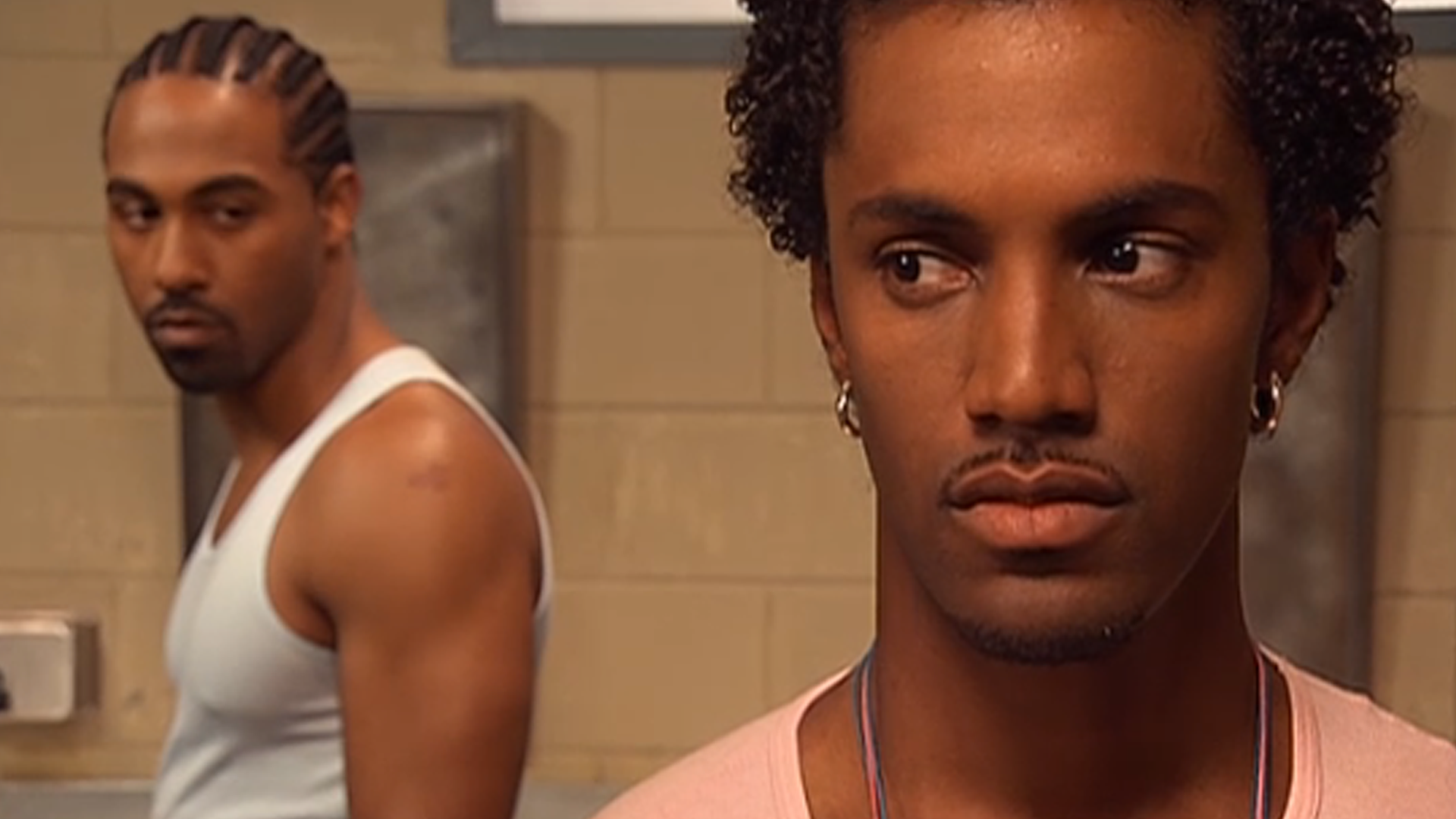
And then here you have Noah’s Arc saying he’s not trying to trick your daughter; this is just a man who is on a journey of loving himself and he’s at the same time falling in love with another man. And at the end of the day with support, he can be his authentic self and he can thrive. He can have the loving relationship that he deserves. We saw with Wilson Cruz’s character [Junito] and his relationship with Christian was about being in a relationship where one person is HIV-positive and we didn’t have those storylines where it was OK to date someone who is positive.
It’s OK when you’re communicating in a healthy way and being honest, you know, and protecting each other. And I think that’s what was so important even for me. And what is sad is that here we are in 2020 and I can’t really think about the last time I saw a show, other than Pose recently, where I saw a conversation being had about someone being positive or about someone who was on their journey of self-love, but not doing it in some sort of clumsy way. We don’t see that enough.
theGrio: As a former social worker and thinking about representation its impact on youth and feeling good about themselves in terms of their self-worth, what would you say Black queer young people need most right now to be empowered?
Karamo: Well, I think what is beautiful is about this generation, especially, you know, being now 39 years old is that my generation, we were very limited in our vocabulary emotionally about how we talked about our community. I remember the conversations I was having were about the debate between masculinity and femininity which is so outdated. It’s about, first of all, creating spaces for young people to know that however they identify and however they see themselves, they are beautiful no matter what. So I think creating more spaces for that to be honored is really great.
I also think there need to be more resources to make sure that young Black, gay, queer, trans people have access to education, to better housing, to so many things. Many have had the opportunity to go to college and therefore have certain opportunities. That’s true for a lot of friend groups. You could be at the club and you go home to your partner and the other person is couch surfing because they don’t have access because they’ve been thrown out.
So I think it’s creating a space for them to have a clear path on how to create a better life for themselves. That’s why I love that this whole reunion is benefiting MOBI. MOBI is such an amazing organization that I’ve been working with for years that truly supports Black LGBTQ+ people and make sure that there is a space for them to talk about their concerns, make sure that they feel supported, make sure they know that they’re beautiful, but also helping them to understand that there’s a path to help them getting toward what they deserve in life.
theGrio: Any parting words?
Karamo: Let’s get Noah’s Arc back on TV! I want this to go past this [reunion]. I want all of us to start a petition. There was a show called One Day At A Time. It was an all-Latino cast and it got canceled and literally that show has been picked up by another network twice now because the fans said enough is enough we want this back. I think that we have the power right now to do the same thing with [Noah’s Arc]. I’m not a cast member, I’m not an executive producer. I’m just somebody who is saying we need more representation. And if we can get this to come back, maybe even open up more doors for other people to have their shows and their images seen and everything else.
Noah’s Arc: The ’Rona Chronicles airs live on mobi-nyc.com/noah on Sunday, July 5 with cast members Darryl Stephens, Jensen Atwood, Rodney Chester, Doug Spearmen, Christian Vincent and Gregory Kieth.
Mobilizing Our Brothers Initiative (MOBI) is a community partner and one of the organizations that will benefit from donation funds. The fundraising goal is $100,000 and donations can be received HERE.
Have you subscribed to theGrio’s new podcast “Dear Culture”? Download our newest episodes now!
The post Karamo Brown talks hosting ‘Noah’s Arc’ reunion after 12-year hiatus appeared first on TheGrio.
from TheGrio https://ift.tt/2NVtyOz
No comments: